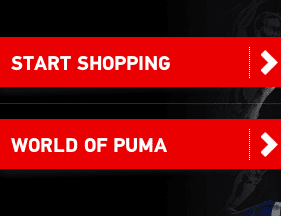Manufacturers that make and sell products under their own brand or brands may see increased revenue and deeper customer engagement when they sell directly to consumers online, but competing with wholesale customers and the challenges of managing consumer relationships can be daunting, if not damning.
Released June 10, 2014, a Forrester and Digital River survey of 109 “U.S. sales channel decision-makers at brand manufacturing organizations” about half of which had already begun ecommerce operations showed that these manufacturers are enjoying new revenue and better customer engagement.
It is important to note that the survey, which is titled “Be Direct: Why A Direct-To-Consumer Online Channel Is Right For Your Business,” is not statistically significant, meaning that its findings can only be applied to those surveyed and not expanded or extended to the larger community of manufacturers. Nonetheless, the insights the survey provides may help manufacturers that are considering selling directly to consumers and bypassing or at least competing with loyal wholesale customers in the retail sales channel.
Direct-to-consumer Sales Increase Revenue
According to the Forrester and Digital River survey, manufacturers that sell directly to consumers enjoy increased revenues.
“In the U.S., online retail spend will grow at an annual compounded rate of 9.9 percent between 2012 and 2017, online retail will account for 10 percent of total retail spending. As consumers’ buying behavior turns increasingly digital, companies are realizing revenue growth in their online channels. Brand manufacturers have told Forrester that their online sales in 2013 grew 28 percent over 2012. Our study supported this finding, revealing that 76 percent of brand manufacturers’ online channels are producing sales revenues at plan or higher. Moreover, brand manufacturers expect that their direct-to-consumer online channels will become the highest generators of sales within the next two years,” the Forrester authors wrote.
Specifically, survey respondents believed that their direct-to-consumer online sales would amount to 34 percent of total revenue, while wholesale sales to retail businesses would account for 30 percent of total revenue.
Deepening Customer Relationships is a Keep Driver
The organizations who participated in the Forrester and Digital River survey also reported that improving consumer relationships was a key driver behind the decision to sell directly and in many cases compete with traditional wholesale customers for the same online sales.
The organizations who participated in the Forrester and Digital River survey also reported that improving consumer relationships was a key driver behind the decision to sell directly and in many cases compete with traditional wholesale customers for the same online sales.
“The trend toward customer obsession,” wrote the survey authors, “places a lot of value on customer relationships. Accordingly, developing more meaningful customer engagement is a strong driver for the development of a direct-to-consumer online channel. When asked about the drivers for developing a direct channel, 72 percent of respondents identified ‘building a closer relationship directly with the customer’ as a key factor. The No. 2 reason given was ‘demand from consumers,” which shows that the desire for interaction through this channel goes both ways. However, the benefits of selling [direct-to-consumer] are not confined to the online channel. Companies report that they’re seeing gains across multiple channels.
For example, 82 percent of respondents reported a generally improved relationship with customers, and 76 percent reported a similarly improved customer experience.”
Ecommerce Operations Challenging
Manufacturers that have generally sold their products wholesale to retailers may not have the appropriate experience and organization to manage an ecommerce business, and will need to add employees, infrastructure, and software.
“Most manufacturers do not have a dedicated ecommerce department. They often (wrongly) make ecommerce a function of their existing sales groups, when the group really needs its own profit and loss management and executive ownership. But building an ecommerce team is hard, particularly in terms of attracting seasoned online merchandisers,” the survey report said.
According to the Forrester and Digital River survey about 45 percent of manufacturers found developing the internal expertise needed to run their direct-to-consumer businesses challenging or even very challenging.
Although the survey did not offer specific examples of what form these challenges might take, there are some obvious inferences. For example, manufacturers that had previously focused on selling to retailers rather than directly to consumers may find customer service a challenge. There is a significant difference between selling to and dealing with a professional buyer and selling to an individual shopper. If nothing else there will simply be a greater number of customers to manage.
If the manufacturer has not already been doing drop shipping or some other form of direct-to-consumer shipping, order fulfillment may also be a challenge. Ecommerce businesses receive in bulk and ship individual orders and products. But manufacturers are accustomed to shipping large orders to business addresses. Here again there are significant differences, and just because a manufacturer has experience shipping does not mean it has the expertise to ship to consumers — at least not without a bit of practice.
Alienating Retail Customers
The survey respondents seemed to believe that venturing into direct-to-consumer sales had impacted relationships with retail customers too much.
“There is a common fear that creating a direct-to-consumer online channel will lead to conflicts with other channels. When we asked manufacturers without a direct channel what roadblocks were preventing them from developing one, ‘fear of alienating channel partners’ was the top response. However, the responses from those that had actually implemented a DTC channel told a very different story. Most respondents indicated that their direct channels had positive impacts on their other channel relationships — and only 9 percent reported a negative impact,” the survey authors reported.
Nonetheless, retailers often feel betrayed when suppliers start to compete with them online.
Perhaps, the only saving grace is when manufacturers sell at the highest price in the market, but otherwise vendors should be careful not to harm the retailers that sell their products.
Summing Up
Manufacturers that build and sell products under their own brand or brands are finding good reasons to consider selling directly-to-consumers if this Forrester and Digital River survey is to be believed. But it will also be important for manufacturers to acquire or hire ecommerce expertise and manage relationships with existing wholesale customers.




